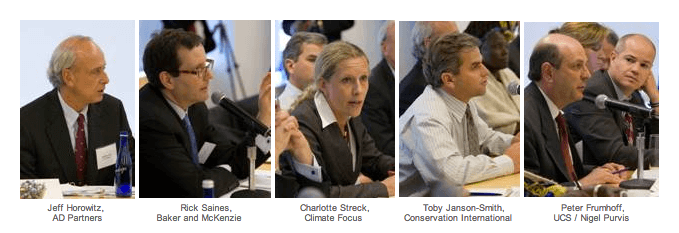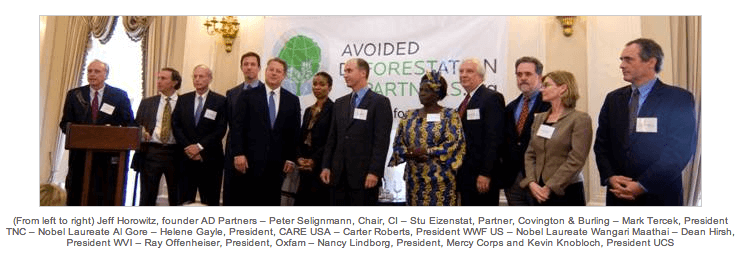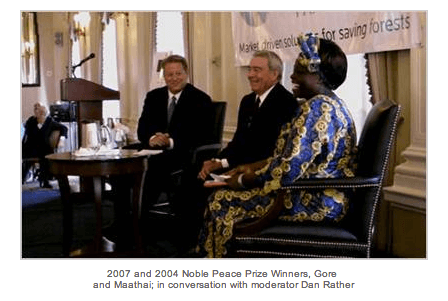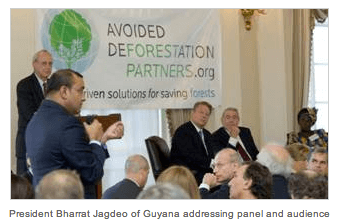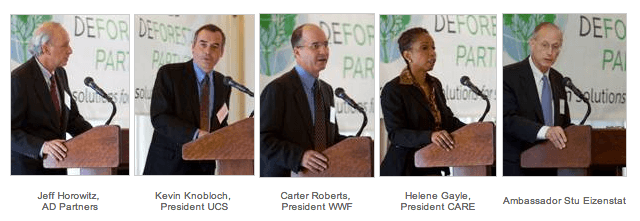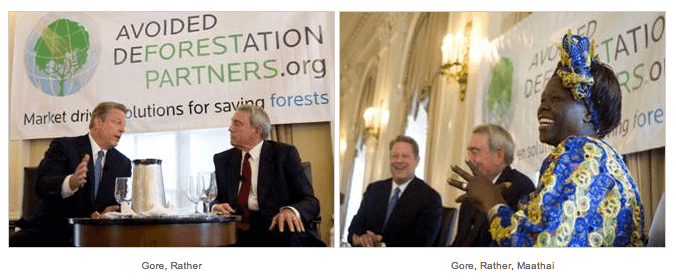News and Events
ADP Convenes Nobel Laureates Al Gore & Wangari Maathai to Discuss Climate, Security & Development Policy
Avoided Deforestation Partners was pleased and honored to host Nobel laureates Al Gore and Wangari Maathai who lead a landmark discussion on the need to protect tropical forests as a central element in the fight to stop climate change and as a key to international peace, stability and development. The panel was moderated by former CBS anchorman Dan Rather.
Summary
“Martin Luther King, Jr. said that ‘injustice anywhere is a threat to justice everywhere’. In the same sense, the increase in CO2 emissions anywhere, is a threat to human civilization everywhere.” These words were spoken by Al Gore, Jr to over 200 key decision makers and leaders attending a September 22, 2008, ADP luncheon featuring Gore and another Nobel Peace Prize winner, Dr. Wangari Maathai from Kenya. As part of a panel moderated by Dan Rather, former CBS anchorman, the two Nobel Laureates stressed the importance of reducing carbon emissions by supporting policies that provide market incentives to reduce or avoid tropical deforestation. Gore and Maathai both urged the U.S. Congress and new administration to provide leadership and take quick action to address climate change. Said Maathai, “If the U.S. doesn’t come forward, everyone else will hide behind you. You have a moral responsibility and you can provide leadership. The rest of the world needs to be told that we need to work together.”
An important theme of both Gore and Maathai was the need to knit together a coalition of groups, from environmental, to pro-poor to those interested in peace and security, to support avoided deforestation policies and address the climate crisis.
This theme was echoed by other featured speakers, the Presidents of the Union of Concerned Scientists, World Wildlife Fund and Care. Together the speakers made these important points:
- Climate change poses threats to making a more peaceful state and equitable world. The poor and marginalized in developing countries are already being impacted because climate change is reducing crop yield, reducing access to safe and clean water, increasing health risk, increasing frequency and intensity of conflicts over natural resources, and increasing impact of natural disasters.
- A flexible “basket of approaches” that includes private sector carbon markets, development assistance and improved governance is needed to address the climate problem.
- Solutions should not only reduce deforestation, preserve biodiversity, recognize rights of indigenous peoples and support sustainable development but above all, also truly contribute to reducing global greenhouse gas emissions.
- The U.S. and the world need to act now to take advantage of immediate opportunities, such as avoiding deforestation, to reduce emissions. The U.S in particular must provide leadership by enacting legislation that will address this critical issue.
Roundtable Discussion Hosted at McKinsey and Company

After the luncheon, AD Partners was pleased to convene a roundtable focused on the importance of Reducing Emissions from Deforestation and Degradation (REDD) policy and strategies for strengthening international forest protection provisions in U.S. climate change legislation. The heads of most major conservation and pro-poor NGOs were present and expressed their support exploring market incentives to reduce tropical deforestation.
The agenda included:
I. Making REDD work: on the ground perspectives, sharing current best practices and practical experiences.
II. Leveraging lessons learned from the voluntary carbon market; development of new standards and methodologies; and
III.What it will take for the U.S. to lead the way; key policy opportunities and engagement strategies.
In addition, on September 23, ADP convened a smaller workshop where technical issues related to the adoption and implementation of avoided deforestation policies were discussed and recommendations were made that will be circulated and shared with those involved in the UNFCC negotiations and with the U.S. legislative process.
Click here to see the report from the September 23 workshop.
back to topRoundtable Discussion Participants
Special International Guests
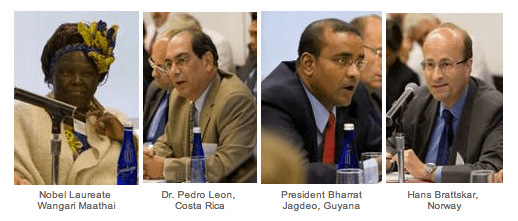
NGO Chairmen and Presidents
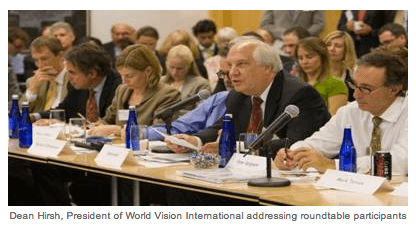
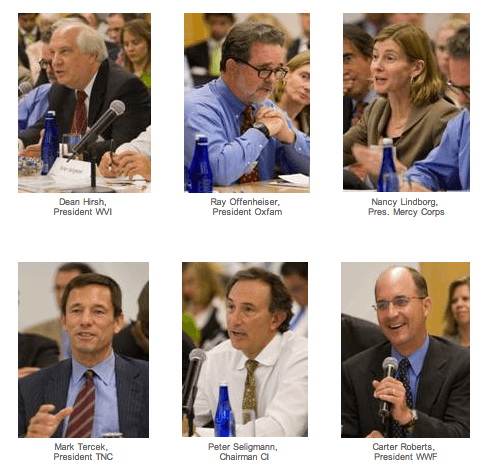
Private Sector Investors and Project Developers
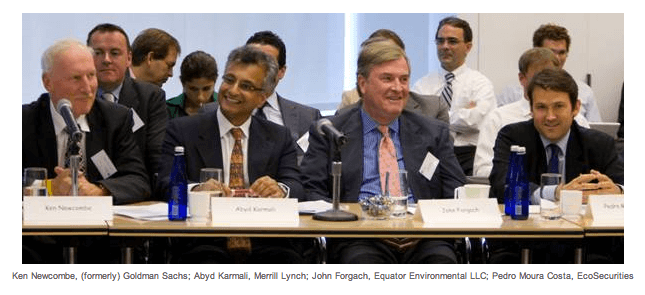
AD Partners Roundtable Moderators
